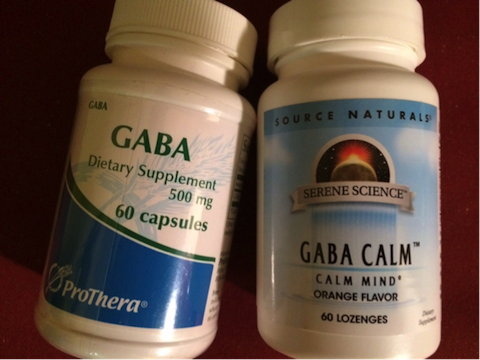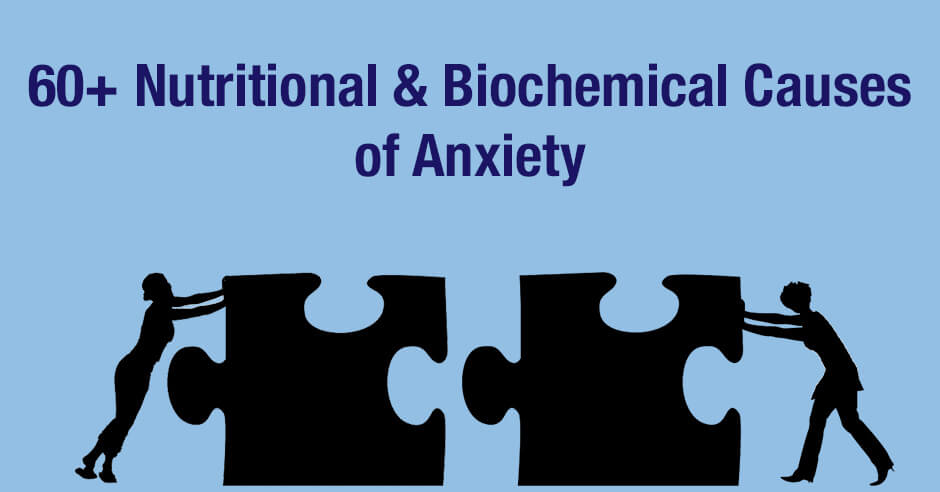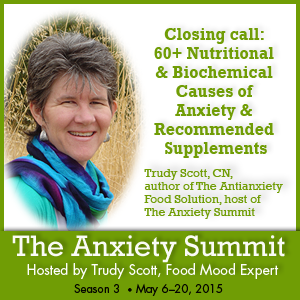
A paper recently published in Scientific Reports: γ-Aminobutyric acid (GABA) administration improves action selection processes: a randomised controlled trial provide the first evidence for a possible causal role of the GABA-ergic system in modulating performance in action cascading:
In order to accomplish a task goal, real-life environments require us to develop different action control strategies in order to rapidly react to fast-moving visual and auditory stimuli. When engaging in complex scenarios, it is essential to prioritise and cascade different actions.
A good example of when we may do something like this is driving a car in busy traffic:
- you are fast-moving
- there are noises all around you – for example: wind, hooting horns, big trucks, rain and water, passengers talking etc.
- you are seeing things all around you – for example: the steering wheel, the speedometer, the other cars, the road, road signs, billboards, the scenery, your passengers etc.
The findings of this study, which involved the administration of 800 mg of synthetic GABA (compared to placebo), found that study participants were better able to prioritize planned actions (for example: make safe driving decisions).
I’m really pleased the study addressed the GABA-blood brain barrier controversy:
In the literature, there are controversial findings about GABA entering the brain through the blood brain barrier (BBB). The BBB is a tightly sealed layer of cerebral endothelial cells that form continuous tight junctions and prevent most solutes from entering the brain on the basis of size, charge, and lipid solubility. However, as pointed out by Shyamaladevi and colleagues, recent studies have demonstrated that the BBB is much more dynamic than assumed in the past, and some passage of solutes can occur by transcytosis, carrier-mediated transport, or simple diffusion of hydrophobic substances
While there is some evidence in favor of only a limited penetration of GABA into the brain, a more recent study with rats has shown that the administration of GABA alone increased brain GABA concentration, when compared to untreated rats.
In addition, the synthetic GABA-like agent gabapentin, which mimics the chemical structure of GABA, leads to an overall increase in central GABA levels and a recent study using 7-T MRS reported an increase in GABA concentration in the visual cortex of healthy participants after gabapentin administration.
Michael Jurgelewicz, DC, DACBN, DCBCN wrote this Designs for Health article about the study: GABA supplementation may help improve ability of prioritizing planned actions, mentioning two possible mechanisms of action as to how GABA supplementation may improve prioritizing planned actions as well as reducing anxiety:
Oral GABA supplementation can act directly on the CNS in a peripheral aspect through the gut. There is definitely a gut-brain relationship between nutrition and the gut microbiome and how they support brain health and function. The gut and brain communicate through the nervous system, immune system, and hormones.
In addition, the hypothalamus (emotional neuroendocrine control center of the brain) is outside and not protected by the blood brain barrier, so these two factors can explain how GABA affects the CNS. It is clear in the research that GABA is helpful with anxiety, and there are many case studies which demonstrate its effectiveness.
Here are some comments from 3 different people on facebook, demonstrating GABA’s effectiveness:
GABA was huge for super tight neck and shoulders! Within 5 min of taking I experienced tremendous relief of muscles and anxiety too
I like True Calm for clients that can’t wind down at night too, it has GABA in it.
GABA, definitely. It’s really helped my tight upper back and neck to feel better.
If you’re looking for more GABA info, during season 2 of The Anxiety Summit, I talked about the BBB, the GABA challenge (which I’m not in favor of) and GABA-receptors in peripheral tissues: Targeted individual amino acids for eliminating anxiety: practical applications.
I would like to add that 800mg of GABA is a much higher dose than I have my clients start with. I have them start on 125mg (as part of Source Naturals GABA Calm) and go up from there. Enzymatic Therapy has a nice 250mg GABA product and I really like the Nutritional Fundamentals for Health GABA-T SAP which has GABA 300 mg and 150 mg l-Theanine 150 mg. The Prothera 500mg GABA is a good choice if you can tolerate higher amounts. Here are links to these and other brands I like. I don’t typically use pharmaGABA but it does work for some individuals (so it may be worth doing a trial. Always consider possible histamine reactions to pharmaGABA if you have histamine intolerance or MCAS (mast cell activation syndrome).
I do not recommend phenibut under any circumstances. Even though the FDA warned companies to cease distribution in 2019 I am shocked to see it’s still available and is still recommended to children.
The promising results of this randomised controlled trial show that oral GABA intake makes a difference and does have an impact on behavior. This is big news!
Resources if you are new to using GABA as a supplement
If you are new to using GABA as a supplement, here is the Amino Acids Mood Questionnaire from The Antianxiety Food Solution (you can see all the low GABA symptoms). It has been updated with “Inability to prioritize planned actions”.
If you suspect low levels of GABA or any of the neurotransmitters and do not yet have my book, The Antianxiety Food Solution – How the Foods You Eat Can Help You Calm Your Anxious Mind, Improve Your Mood, and End Cravings, I highly recommend getting it and reading it before jumping in and using amino acids on your own so you are knowledgeable. And be sure to share it with the team you or your loved one is working with.
There is an entire chapter on the amino acids and they are discussed throughout the book in the sections on gut health, blood sugar control, sugar cravings, self-medicating with alcohol and more.
The book doesn’t include product names (per the publisher’s request) so this blog, The Antianxiety Food Solution Amino Acid and Pyroluria Supplements, lists the amino acids that I use with my individual clients and those in my group programs.
If, after reading this blog and my book, you don’t feel comfortable figuring things out on your own (i.e. doing the symptoms questionnaire and respective amino acids trials), a good place to get help is the GABA QuickStart Program. This is a paid online/virtual group program where you get my guidance and community support.
If you are a practitioner, join us in The Balancing Neurotransmitters: the Fundamentals program. This is also a paid online/virtual program with an opportunity to interact with me and other practitioners who are also using the amino acids.
Have you noticed that you can handle complex planned tasks and are better at prioritization when you are taking GABA (or have taken it in the past)?
And would you say that it’s the overwhelm factor that is being removed/lessened when taking GABA?
If you are a practitioner are you seeing results like this with your clients/patients?
If you have questions please share them here too.


